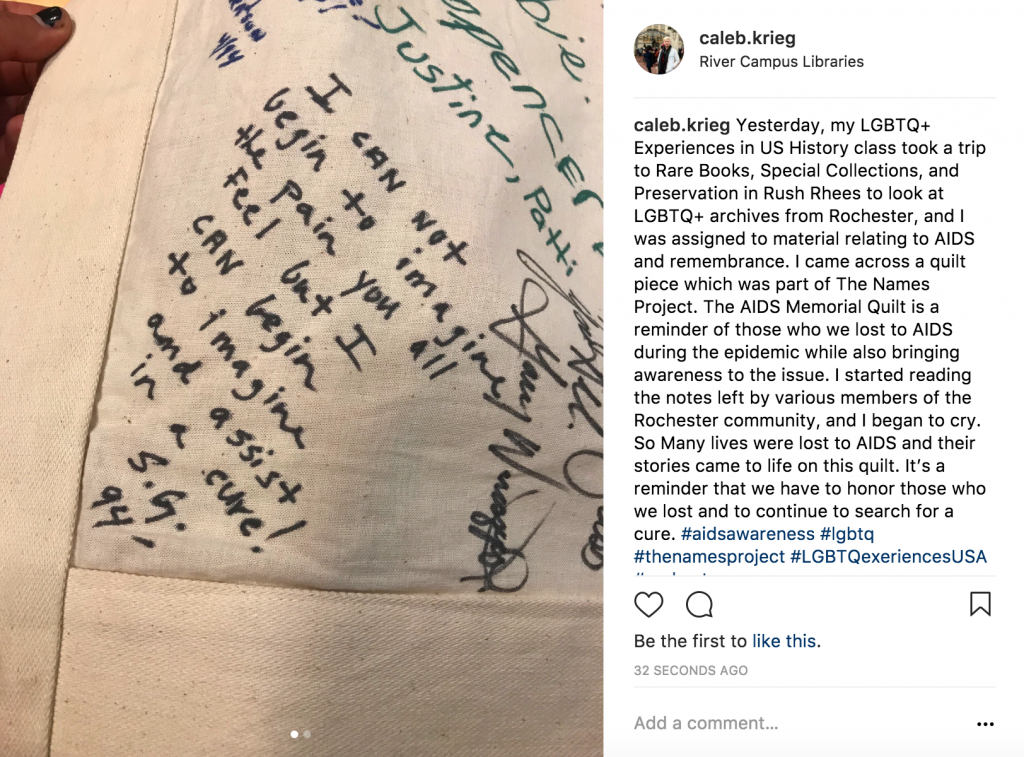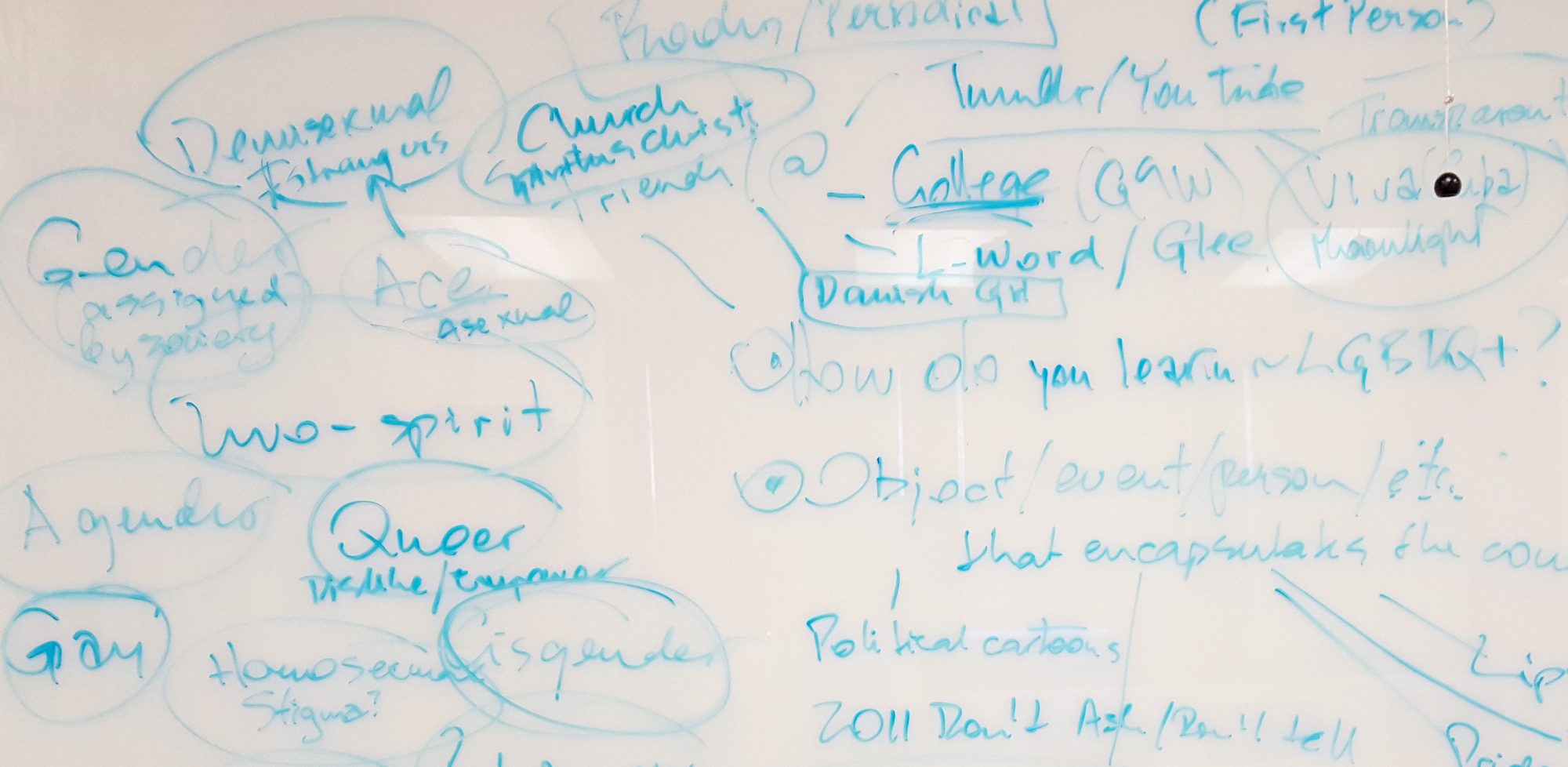AIDS Memorial Quilt
When our class visited the Special Collections, I was placed with my partner at the table for AIDS and AIDS Remembrance. Of the pieces at the table, the most impactful was the Rochester portion of the AIDS Memorial Quilt for the Names Project. The Names Project was a grassroots community artwork where people or communities could submit quilts honoring those who we have lost to AIDS. Rochester has a portion that was made in 1994, and we began to read all of the notes left on the quilt. While some wrote very general responses wishing those we lost eternal peace, others were more direct in referencing specific individuals and the memories associated with them. I quite honestly started to cry seeing some of the responses. One response left by a father telling his son that he will always love him even if he can no longer see him. The AIDS Memorial Quilt was actually on display at the University of Rochester before in April 1994 (http://www.rochester.edu/newscenter/aids-remembrance-quilt-resurfaces-after-nearly-23-years-in-basement-219662/), and I believe that the sense of community created by this exhibition is incredibly useful to inspire and enact change. Once you are able to physically see the lives that were affected by AIDS, maybe it would push people to be more open to erasing the stigma around the disease and to fight for a cure.
Inclusion on Campus
While being here at the UofR, I have been exposed to people of many different and unique backgrounds, significantly more than back home in Tennessee. As a first-year, I initially thought that everyone was proportionately represented, but as I grew older and more involved, I realized that I was viewing society here through rose-tinted glasses. From a perspective at the beginning of my college career, I noticed that lack of minority and POC representation in PRIDE network, but since that has improved drastically to a truly inclusive organization. Outside of organizations, I have been in groups of protests and organizing efforts to change the campus climate, and unsurprisingly, these groups have lacked minority and POC inclusion. For instance, I was with the team that organized the push against the university when it came to the Jaeger case, and there was a severe shortage of minority voices in that group when it came to people of color. The issue is that sexual assault is blind to who you are and how you identify. It can happen to anyone, so the scarcity of inclusion of their voices led to a skewed reality of the issue. Luckily, there was a movement within the group once we recognized the flaws, but it unfortunately came too late in the process. The group fell apart. I think this issue occurs a lot to groups where there is a lack of self and group awareness. Those who identify with at least part of a majority identity are unaware of their comfortable nature of being surrounded by like-people, and continue to be blinded from seeking well- rounded representation.
